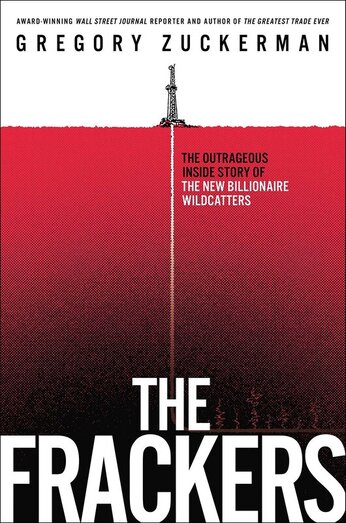|
The phone call came as a jolt.
It was May 2007 and Harold Hamm was enjoying dinner at the Brown Palace Hotel and Spa, and elegant hotel in downtown Denver. To Hamm’s right were two longtime colleagues from his energy company, Continental Resources. A pair of Merrill Lynch investment bankers sat to Hamm’s left. The group was two-thirds though a grueling ten-day coast-to-coast trip aimed at wooing investors ahead of a crucial initial public offering of shares of Continental. When rock banks go on road trips, the days are slow and the nights furious; when executives take to the road to sell pieces of their companies, the opposite usually is true. Hamm and the bankers had spent a full day convincing mutual fund honchos that Continental was set to strike it big in North Dakota, a long-overlooked part of the country. Now the group relaxed over dinner and drinks, their jackets off and ties loosened, as they discussed ways to improve their pitch. As he’d courted the investors, Hamm hadn’t dwelled on the personal challenges he had overcome, such as growing up dirt poor in rural Lexington, Oklahoma, the youngest of thirteen children. He’d also avoided mention of his more recent turbulent love life. |
Instead, Hamm shared an upbeat message about his company and a promising 15,000-square-mile formation of rocks called the Bakken that was under parts of North Dakota, Montana, and Canada. Hamm believed he was at the vanguard of a revolution that would deliver new oil and gas supplies to a nation running out of energy.
For all his big talk, though, Continental was producing just seven thousand barrels of oil a day from the Bakken’s dense rock. It was a mere trickle, representing a fraction of 1 percent of what Exxon pumped on a daily basis. The results offered little proof that much more would flow from a region that had frustrated wildcatters for years, making Hamm’s pitch to investors challenging.
For all his big talk, though, Continental was producing just seven thousand barrels of oil a day from the Bakken’s dense rock. It was a mere trickle, representing a fraction of 1 percent of what Exxon pumped on a daily basis. The results offered little proof that much more would flow from a region that had frustrated wildcatters for years, making Hamm’s pitch to investors challenging.
|
Still, the trip appeared to be on track, and the final leg – meetings with investors in Los Angeles – was just days away. The Merrill Lynch bankers told Hamm there seemed to be enough interest in Continental for the company to sell its shares for as much as eighteen dollars each in its prospective offering. With the IPO just a few weeks away, Hamm, a sixty-one-year-old with thinning auburn hair, a full stomach, and a playful grin, was in good spirits as the dinner wound down.
|
When rock banks go on road trips, the days are slow and the nights furious; when executives take to the road to sell pieces of their companies, the opposite usually is true. |
A lot was riding on the offering. Continental already owed $253 million to lenders, and Hamm planned to use some of the IPO’s proceeds to pay down a portion of that debt. He knew his company would have to raise hundreds of millions of additional dollars at some point to tap the vast quantities of oil he was convinced were buried in the Bakken’s layers of rock. Being public was the only way his company could raise enough cash at reasonable rates to find all that oil.
“We had to be public to be a major player in the Bakken,” Hamm recalls. “But at that point we had very little product.”
“We had to be public to be a major player in the Bakken,” Hamm recalls. “But at that point we had very little product.”
|
Outside the hotel, gloom was setting in. The real estate market was on its last legs, financial firms were wobbling, and the global economy soon would experience its worst downturn in eighty years. Technology and management gurus said America had lost its creative spirit and the country’s economic dominance seemed doomed. Many economists predicted a passing of the baton to India, Brazil, and China. Energy producers were coming up dry, leading to hand-wringing on Wall Street and in Washington, D.C., about how the United States would meet its future energy needs.
|
"In a sense, Hamm’s real life’s work was just beginning. He was convinced a historic gusher was in the offing that would re-energize the entire country." |
As Hamm looked around the table, thought, he was convinced he was close to realizing his life’s dream, one that would help confer extraordinary blessings on the nation just when it needed them most. Most executives his age were negotiating retirement packages and scouting golf courses. In a sense, though, Hamm’s real life’s work was just beginning. He was convinced a historic gusher was in the offing that would re-energize the entire country.
Just then, one of the Merrill Lynch bankers, Christopher Mize, heard his cell phone ring. Hamm watched as Mize picked it up.
“Wow… that’s a surprise… okay… thanks.”
Hamm senses something was wrong.
“It’s not good,” Mize told him.
Two competitors in North Dakota has just reported results from their own exploration efforts in the Bakken rock layer. They were big-time disappointments, suggesting that Continental would also come up dry in the area.
“They busted their pick,” one of the bankers told Hamm, using industry lingo for a huge strikeout.
We can pull the plug on the IPO or keep it going and try to make it happen, though it will be more of a challenge, the bankers told Hamm. It’s up to you, Harold. Think it through carefully. Hamm barely uttered a good night and went straight to his room, shaken by the news.
The next morning, Hamm told his team they’d continue to pursue the IPO, even if it meant lowering the price to try to entice investors. They might not appreciate what Continental was working on, but Hamm was sure they’d catch on.....
Just then, one of the Merrill Lynch bankers, Christopher Mize, heard his cell phone ring. Hamm watched as Mize picked it up.
“Wow… that’s a surprise… okay… thanks.”
Hamm senses something was wrong.
“It’s not good,” Mize told him.
Two competitors in North Dakota has just reported results from their own exploration efforts in the Bakken rock layer. They were big-time disappointments, suggesting that Continental would also come up dry in the area.
“They busted their pick,” one of the bankers told Hamm, using industry lingo for a huge strikeout.
We can pull the plug on the IPO or keep it going and try to make it happen, though it will be more of a challenge, the bankers told Hamm. It’s up to you, Harold. Think it through carefully. Hamm barely uttered a good night and went straight to his room, shaken by the news.
The next morning, Hamm told his team they’d continue to pursue the IPO, even if it meant lowering the price to try to entice investors. They might not appreciate what Continental was working on, but Hamm was sure they’d catch on.....



